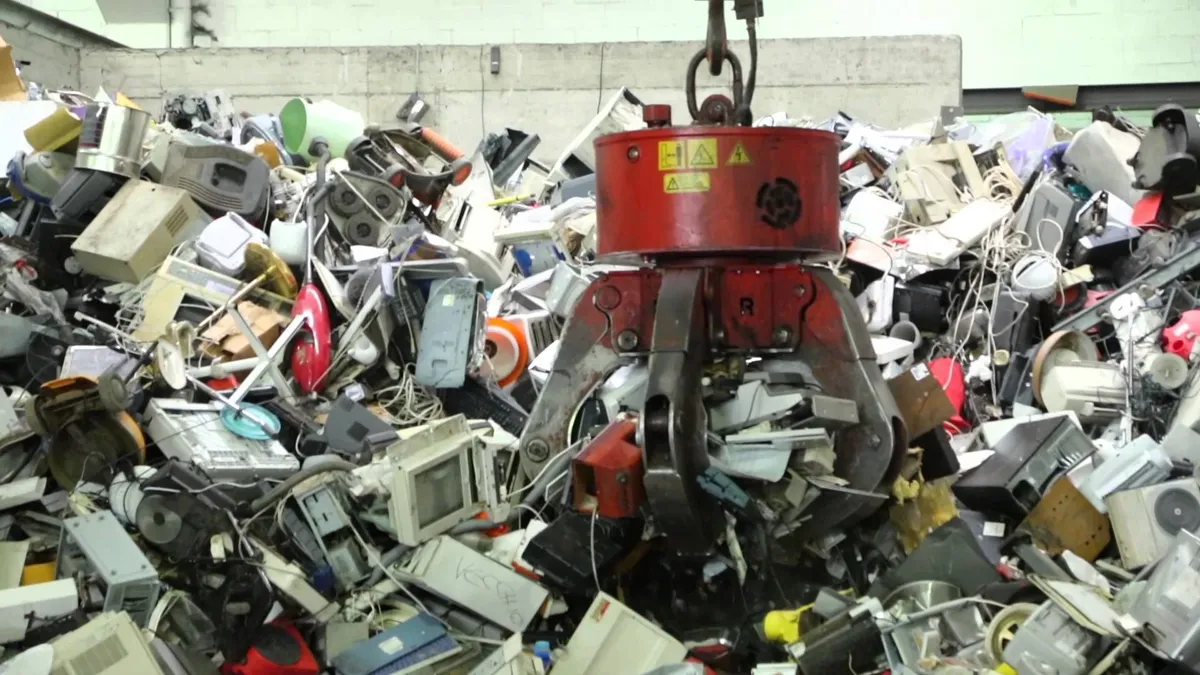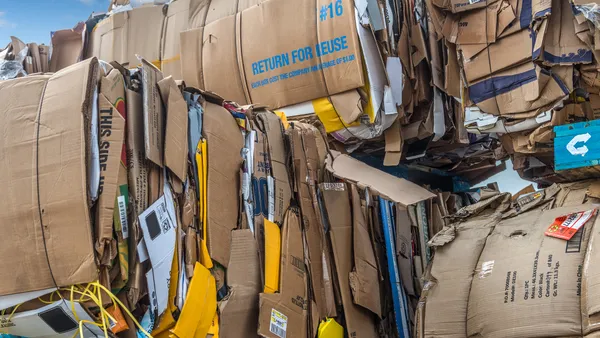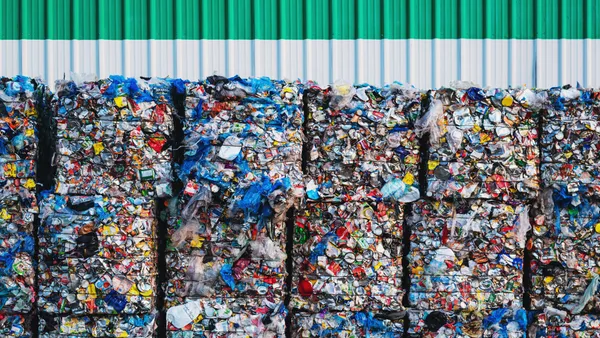Dive Brief:
- Some North Carolina legislators want to repeal the bill which established the state's electronic recycling program, citing a downturn in the market. They say once electronic recycling is more profitable the program could be reinstated.
- The 2010 bill banned e-waste from landfills and created a recycling program which is funded by annual fees from electronics manufacturers. Those in favor of the repeal say the program has been unsuccessful and led to an increase in illegal dumping.
- A broader bill to reduce state regulations — which would in turn repeal the 2010 bill — is scheduled for Senate floor debate next week. Environmental groups are strongly opposed to repealing the original 2010 program.
Dive Insight:
While more than half of U.S. states have some form of e-waste regulations, there are gaps in the system and many have struggled to make the finances work. Minnesota may soon be passing new e-waste regulations, but many states have gone in the opposite direction.
West Virginia reversed a ban on landfilling certain categories of e-waste, though it did leave the door open for individual communities to enact their own bans. The state found this law had become burdensome on local agencies and led to an increase in illegal dumping. New Jersey Governor Chris Christie vetoed legislation which would have updated the state's e-waste program earlier this year. Collection sites were also recently closed in Rhode Island and the Chicago area due to funding issues.
Some say a federal policy could help stabilize this situation, though as technology changes and becomes more complex the logistics of recycling it will still be challenging regardless of finances. Yet without some type of government solution, much of this material will likely end up in landfills. Repealing e-waste laws may save money in the short-term, but it's a dangerous precedent to set if states want to maintain consumer awareness and eventually bring these programs back.













